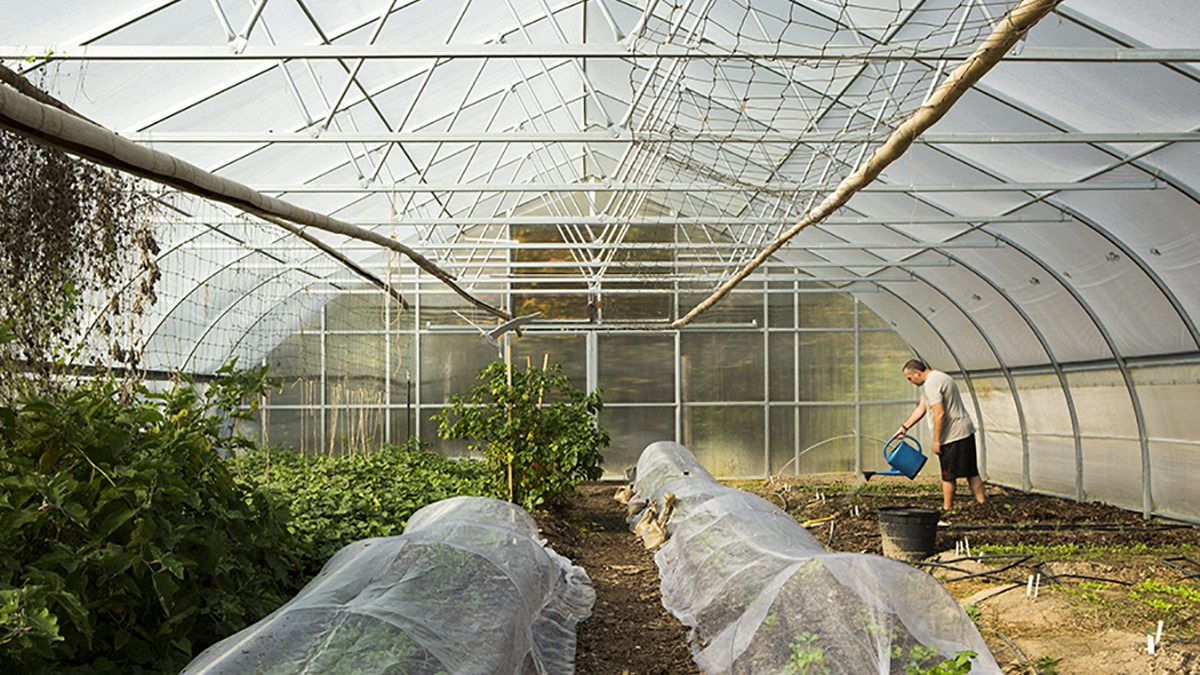To treat mental illness: medication, talk therapy and … plants?
Carolina’s innovative therapy programs, including a horticulture program that uses gardening to improve mental and emotional health, are serving North Carolinians with severe mental illness.

If you’re feeling down, anxious or stressed, a houseplant could help.
Plants have several health benefits, from lowering blood pressure to improving memory and concentration. Plus, jokes Thava Mahadevan, “Plants don’t talk back.”
The complex scientific benefits of being around nature come together in horticulture therapy, an emerging practice that uses plants and gardening to improve the emotional and physical health of people living with a mental illness. Alongside the more traditional approaches of medication and talk therapy, horticulture therapy can help patients build self-confidence and social connections.
To bring the healing powers of nature to community members, Mahadevan is collaborating with the North Carolina Botanical Garden to offer horticulture therapy to community members struggling with severe depression, anxiety and other mental health difficulties.
“There’s something about working with plants and working with the soil that has a lot of both physical and mental health benefits for someone,” said Mahadevan, director of operations for the UNC Center for Excellence in Community Mental Health. “Being able to complete a task fully without being judged makes a big difference, too. It really promotes recovery from their mental illness and gives them a sense of hope and worth.”
The program is hosted at the UNC Farm at Penny Lane, a 40-acre farm just miles from campus with its own greenhouses, community gardens, bees and chickens. Therapy participants, who are referred by local clinicians, grow and harvest vegetables, flowers and herbs with guidance from horticulture therapist Sally Haskett.
“Horticulture therapy is unique,” Haskett said. “You’re outside, getting fresh air, sunshine, physical activity — it’s not something that you normally get with the other therapies. And you’re working with live material. You see the process of life unfolding in front of you, and that connection to the life force is pretty unique.”
Participants also take home the organic vegetables they grow, addressing mental illness from another angle. Because nutrition and socioeconomic status are two of the many social factors that influence mental health, the Farm at Penny Lane also offers classes for clients to learn how to cook three healthy meals a day on a $5 budget.
“Things like what zip code someone lives in, what they eat, how they live, their housing and employment, all these things have huge impacts on their health outcomes,” Mahadevan said. “It’s important to incorporate all those things when we are working with our clients.”
The idea for the center’s recovery and rehabilitation programs, which also include art therapy and canine companionship, came to Mahadevan while he was a direct practice clinician. He noticed that by failing to address social determinants of health such as homelessness and unemployment, patients were ending up back in the hospital.
“I was seeing that our patients were getting traditional services, but then they would leave the clinic, and they didn’t have a place to go to sleep, or they didn’t have the co-pay to buy medicines,” Mahadevan said. “By not focusing on all those other nonmedical drivers of health, we weren’t seeing good outcomes. We were recycling people. It was this constant state of people staying sick, for lack of a better word.”
Mahadevan and Haskett believe complementary therapies such as horticulture therapy can fill a gap left by more traditional medical treatments and address these social determinants of health.
“It is definitely a growing field, and we are hoping to make it more mainstream because we are seeing benefits definitely on this one,” Mahadevan said. “We want more people to be able to access them as opposed to doing them in isolation in a few places, and I think that is slowly beginning to happen.”




